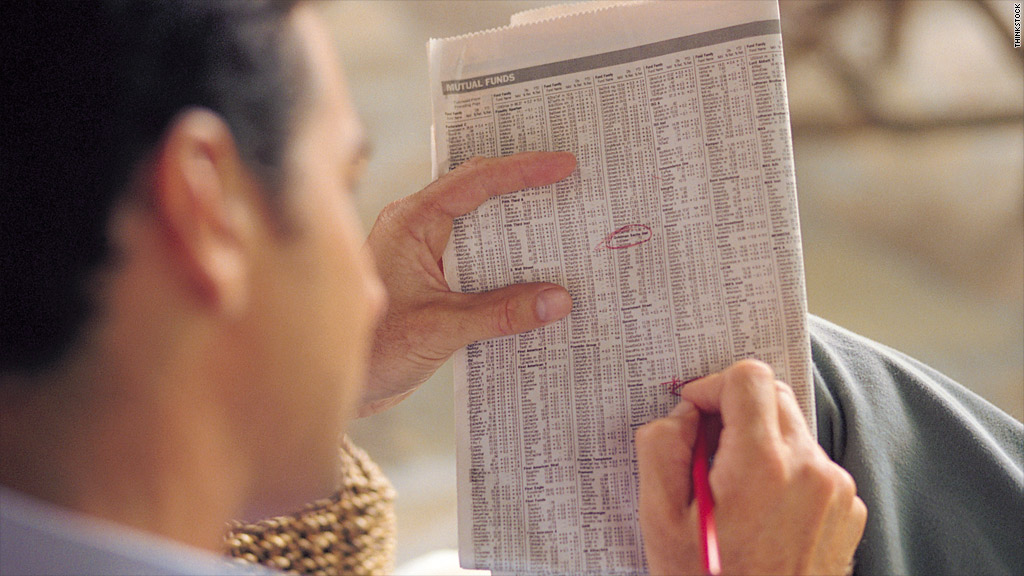
Among the rich, gender equality is still far out of reach when it comes to investing the family's money.
Nearly three-quarters of wealthy men say they are better qualified to make investment decisions than their spouse, according to a survey of some 650 adults with $3 million or more in investable assets conducted by U.S. Trust, Bank of America's private wealth management division. That compares with a mere 18% of wealthy women who believe they could do a better job.
Similarly, 73% of rich men say they have a greater say in household investments like retirement funds, stocks and other assets -- compared to 15% of women.
Much of this disparity likely has to do with traditional gender norms, said Chris Heilmann, chief fiduciary executive at U.S. Trust. "The social norm from an investing standpoint has tended to be that men have generally seemed more interested and have tended to take the lead in terms of investments," said Heilmann.
Older generations cling to social stereotypes: That's especially true among older generations, according to the survey.
Myrna Levey, a 74-year-old from Ohio, said she has no desire to make investment decisions. She was always too busy raising her children and working, while her husband -- who she has been married to for 53 years -- enjoys the investing world, she said.
"He enjoys listening to all the news programs and picking stocks, but I never got into that" she said.
Related: Why the jobs recovery favors single workers
He's done a good job so far, so she's never felt the need to get involved. Many of the couples she and her husband know operate the same way, with the man making most of the investing decisions.
"I don't know any of our friends where the lady does the investing," she said. "It might be that [the men] feel responsible for the household's money. And maybe that's different now -- maybe younger couples are doing it differently."

She's right. More younger couples are doing it differently.
While only 34% of high net worth married couples over the age of 67 and 39% of baby boomer couples say they play equal roles in investment decisions, nearly half -- or 46% -- of young married couples between ages 18 and 46 share investing decisions equally.
"Younger couples are making more decisions together," said Heilmann. "The younger generation of women seems to have more interest in sharing decisions in general, and the younger generation of men or husbands are interested in their spouses assisting."
For richer or poorer: When it comes to investing, the gender gap exists no matter how wealthy a couple is.
While no directly comparable data was available for the average American household -- regardless of income -- a recent Fidelity survey showed that only 15% of women consider themselves the primary contact for their family's investment adviser, compared to 40% of men.
However, Heilmann said traditional gender roles typically becomes less pronounced as income declines, since couples with less money have fewer investment options and are more likely to consult a spouse before investing the limited funds they have.
Where gender roles even out: Outside of investing, the roles become a little more balanced -- with many women handling the household budget or making philanthropic decisions while their husbands deal with the investments, said Heilmann.
That's what happens in Joe Richardson's household. Richardson, a 72-year-old survey respondent from New York, said he doesn't think men are more qualified than women to do the investing -- his portfolio is managed by a "very bright, brilliant, woman," after all. But he has been investing for nearly 50 years, while his wife has never been interested in it.
Related: Basic rules for getting rich
"I'm a retired 47-year corporate banker, I was an Economics major. [My wife] was a major in Biology and became a social worker," he said. "It's not that she's not astute in financial matters, we just divvied up the responsibilities -- she handles the household budgeting, and I manage the investment world."
The U.S. Trust survey found that 77% of women say they play an equal role in household budgeting decisions, which could include buying a new car, renovating a home, or making any other purchases that would require additional planning or saving. But only 52% of men say that the roles are equal.
Women are the more dominant force when it comes to philanthropy. A Bank of America study from last year shows that in nearly 90% of high net worth couples, women are either the sole decision maker or play an equal role in charitable giving decisions.
"When you get into issues outside of investments -- such as wealth transfer planning or philanthropy -- we find much more even footing between husbands and wives," U.S. Trust's Heilmann said. "The investment side is where men have perceived themselves as knowing more."
